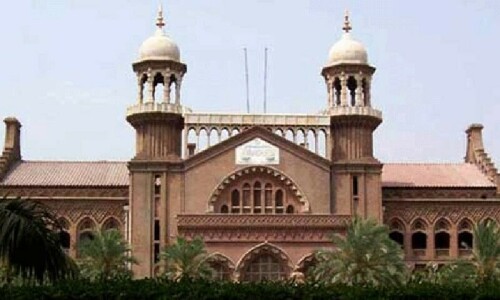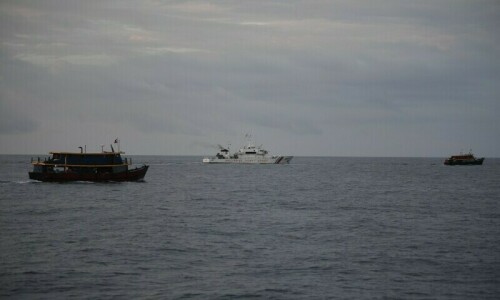PM Imran urges global community to take 'quick, concrete' steps to control illicit financial flows

Prime Minister Imran Khan on Thursday urged the international community to take "quick, concrete" steps to stem the flow of illicit money from developing countries to tax havens and to ensure the return of stolen assets, saying that it could have a "transformational impact" on their development prospects.
These steps should include a commitment by countries that were currently acting as tax havens to "immediately and unconditionally return all foreign assets that are shown to be stolen or whose legitimacy cannot be explained".
The prime minister made these remarks while speaking at the virtual launch of the final report of the High-Level Panel on International Financial Accountability, Transparency and Integrity for Achieving the 2030 Development Agenda (FACTI panel).
He referred to the Organisation for Economic Co-operation and Development's (OECD) proposal to freeze and return the unexplained assets of foreign politically exposed persons, saying it was "worthy of consideration".
He also suggested several steps the United Nations could take such as initiating "negotiations on the new international tax corporation and anti-money laundering legal instruments like the Convention on Corruption, adopt common principles identified by the FACTI panel that would apply to all financial transactions and establish a UN coordination, adjudication and mediation mechanism on illicit financial flows".
Prime Minister Imran began his speech by outlining the heavy cost developing countries had paid due to illicit financial outflows, sharing that $7 trillion in stolen assets was parked in financial tax haven countries.
"The flight of these vast resources from developing countries is the fundamental cause of their underdevelopment, poverty, inequality and political instability."
The prime minister reminded the world community that during the presentation of the FACTI panel's interim report in September last year, he had suggested several global policy actions including the immediate return of stolen assets, penalties on the financial institutions, lawyers, accountants and other enablers of corruption crime and tax evasion, disclosure of beneficial ownership of companies, a global minimum corporate tax, fair digital taxation, review and revision of unequal investment treaties and a coherent mechanism for monitoring illicit financial flows set up under the UN.
He expressed satisfaction that these suggestions were reflected in the panel's final report launched today.
The premier termed the illicit flow of money as a "systemic problem" that would require a systemic solution and could not be resolved through "piecemeal and cosmetic" actions.
"The magnitude of the illicit financial flows is staggering. If recovered and returned, they could have a transformational impact on the development prospects of the developing countries," he noted.
Sharing some points from the report, the premier said that the return of the stolen money could "enable the developing countries to eradicate poverty, reduce inequalities, build back better after the Covid crisis, address climate change and strengthen human rights".
He revealed the three-point plan proposed by the FACTI panel and endorsed it.
According to the plan:
- International values of honesty and integrity should be applied to all financial transactions.
- Policy frameworks should be strengthened.
- Relevant institutions dealing with illicit financial flows should be reformed and reinforced.
Prime Minister Imran suggested the regulation of national and cross-border transactions through a value-based system encompassing accountability, transparency, legitimacy, fairness, inclusion, and equity.
"These values should be reflected in all national and international financial instruments, institutions and transactions and particularly in those bodies that address illicit financial flows [...] Global financial governance must improve," he emphasised.
He also called for policies on the illicit flow of money to be implemented in a coherent manner by national and international bodies, adding that these institutions should be inclusive and representative.
"They should not be used as instruments of pressure and coercion against developing countries," he cautioned.
Prime Minister Imran suggested that a UN-guided forum should "coordinate [with] all bodies [dealing] with technical, legal and political aspects of illicit financial flows, adding that the forum should also incorporate a mechanism to adjudicate and mediate disputes on issues relating to illicit financial flows.
He called on the world community to act on the recommendations of the FACTI panel's report, saying Pakistan would be "happy to join in proposing" its adoption by the UN Economic and Social Council and the General Assembly.
"Pakistan would work actively with all like-minded countries to realise these vital objectives," he added.














































